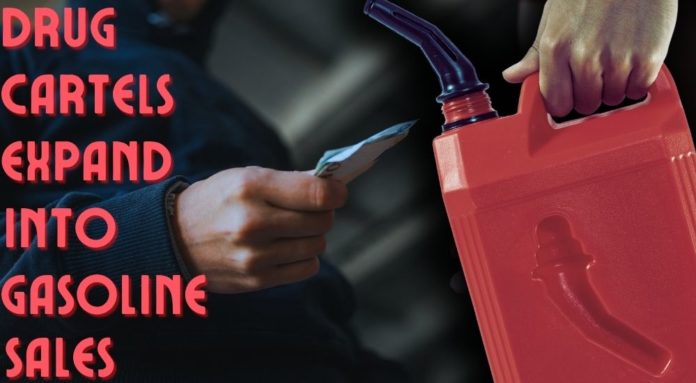First, it was avocados, then limes, and now, gasoline. South American drug cartels have turned incredible profits trafficking drugs like marijuana, cocaine, and heroin over the U.S.-Mexico border, a trade that expanded to pricey agricultural products like limes and avocados in recent years. This diversification has served the groups well in the past, but as the price of gas continues to hover near historic highs, it’s become the newest target for enterprising smugglers. While US officials have largely derided the cartel’s new side business, one used car dealer says they’re filling a vital need.
“Say what you want about cartels abducting school children, sewing journalists’ faces to soccer balls, or effectively ghettoizing large swaths of Central and South America, but they’re still doing more to address the current fuel prices than the Biden administration,” says Jeff Dunwittie, sales manager at Tarheel Buick GMC.
Areas where the cartels operate have seen a marked reduction in gas prices as drivers turn to the black market to meet their fuel needs. It’s a win-win for everyone but the tax man, though some buyers say there are a few habits from the cartel’s drug-pushing days that they’ll need to revisit if they want to ensure success. “It’s not that I don’t appreciate them tackling this vital need, but it would be a whole lot easier if they sold the gas in anything but 3.5-gram plastic baggies,” says Dunwittie. “It can take all afternoon to fill up a tank, and more often than not, they’re a little light.”
For some within the cartels, the new focus on gasoline is a welcome respite from the world of drug smuggling. Not only is the business less dangerous on both sides of the border, but there are also considerable benefits when it comes to quality of life. “I don’t have to worry about drug-sniffing dogs, border crossings, or listen to a frat bro named Trevor tell me about his weekend in Vegas or how he’ll change his dad’s company when he finally gets to be the boss,” says Michael Santos, who has worked for the cartels since he was a teenager.
Still, others take issue with the cartel’s new line of work. Smuggling has never been a morally defensible business, but even so, some workers take issue with the gasoline trade. “Sure, drugs like heroin and cocaine can destroy communities, families, and the very fabric of society, but at least they’re not actively destroying the environment,” says Edgar Blanco. “I got into the drug trade to make some money, meet girls, and gain some street cred to help launch my rap career, but I didn’t sign up for mortgaging the planet’s future so some suburban teen can make 4 separate trips to Starbucks in a single day.”
The success of the gasoline venture has the cartels looking at other underserved sectors of the US market, with the pharmaceutical industry emerging as a potential cash cow. Having rapidly developed an expertise in transporting liquids over a long distance, the cartel Santos works for is now targeting insulin as the logical next move. The artificial hormone is one of the most expensive liquids in the US, costing an estimated $9,400 per gallon due to the country’s extreme fetish for free-market principles. While a month’s supply of insulin might cost as much as $3,700 in the US, the same amount rings up at just $600 in Mexico, with the price discrepancy holding considerable potential for the cartels.
“We’ve heard all the horror stories about the healthcare industry in the US and thought this would be a great way to give back to the country that’s given us so much. The US government can’t seem to guarantee quality, low-cost insulin for the nation’s diabetics, but from one criminal syndicate to another, I just want to tell them: it’s really not that hard,” says Santos.












